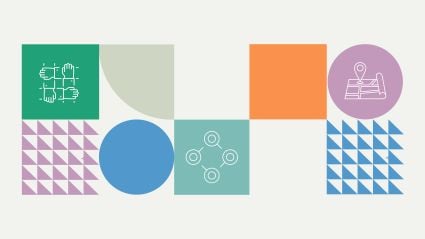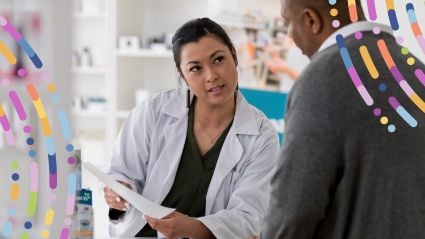
Nothing is more personal than our health. And few things are more common to the human experience than our desire to live full, healthy lives. No matter who we are, what we do, or where we live, disease has touched us all in one way or another. We humans, despite all our differences, share a wish for good health for ourselves and our loved ones. We also know how important it is to have health care that addresses our unique individual needs.
This century has seen giant leaps in biomedical science and personalized health, all in service of helping patients live longer, healthier lives. New methods have emerged for preventing, finding, treating, and even curing diseases from cancer to COVID-19. Genetic testing, gene editing, artificial intelligence, and other technologies are improving health and making longer, fuller lives possible.
But complex global threats persist. These threats push our science and strain our resources. And no one entity or sector can solve these challenges alone. Radical improvements need radical collaboration.
As a society, we have acclimated to more data sharing. We increasingly see the benefits in our everyday lives as companies collaborate and share information to build better consumer, health, and wellness products that help us move through life. More and more, we experience the impact of information sharing in our health-care system. Collaboration and public-private partnerships are behind much of this progress, fueling some of the most significant health advances of the past two decades.
“Radical improvements need radical collaboration."
These collaborations bring government, industry, academia, nonprofits, and other partners together to tackle shared challenges more efficiently and cost-effectively. Do they take time to set up? Yes. Are they able to achieve more expansive results? Yes.
Early collaborations like the 1999 SNP Consortium showed the value of uniting federal health entities with external partners, producing a comprehensive map of single nucleotide polymorphisms (SNPs) in the human genome. Established by the National Institutes of Health (NIH), the SNP Consortium created public resources that are still in use today and sparked multiple follow-on partnerships that revolutionized gene therapy development. One such partnership, launched in 2021, is the Bespoke Gene Therapy Consortium (BGTC). The BGTC has streamlined gene therapy creation for more than 30 million Americans with rare disorders, funding multiple clinical trials and creating new models speeding drug development and approval. It is part of the Accelerating Medicines Partnership ® , a public-private partnership managed by Foundation for the National Institutes of Health (FNIH), involving the NIH, the US Food and Drug Administration, and several life science companies.
Another great example of collaboration at work is the Accelerating COVID-19 Therapeutic Interventions and Vaccines (ACTIV) partnership, which united government, academia, nonprofits, and biopharma to speed development of the most promising COVID-19 vaccines and treatments. Convened by the FNIH, ACTIV led to the development and emergency use authorization of the first mRNA vaccine in just 10 months. By creating new treatments and vaccines with unprecedented speed and success, ACTIV created a model for how to disrupt existing systems and drive innovation in even the worst of times.
From tangible interventions like vaccines and drugs to prevention interventions and machine learning models that help us make more informed, personalized health decisions, cross-sector collaborations can accelerate progress in health care, public health, and biomedical research.
Generative artificial intelligence (GenAI) is a machine learning model that brings unprecedented efficiency to health care and other sectors. It can help address long-standing health disparities by finding new data patterns. It can also strengthen epidemiological models and improve public health responses. But managing the risks and opportunities of this technology is a human task that requires cross-sector expertise. Deloitte’s Federal Health AI Accelerator brings together leading minds and sectors to explore the risks and opportunities of pursuing trustworthy GenAI in health and articulate the challenges and the opportunities, then find the best path forward. The leaders convened by the Federal Health AI Accelerator come from across the health-care industry, including government, nonprofits, academia, biopharmaceutical companies, and tech. Collaborators work together in cross-functional research sprints to address real public health needs with the goal of sharing specific, practical uses for Gen AI with health officials, clinicians, and providers, along with recommendations for building trustworthy AI solutions in federal health agencies.
We envision the future of health to be an era of unprecedented convergence, collaboration, partnerships, and networks across all sectors of the life science and health-care ecosystem. Only by working together can we achieve integrated, equitable health solutions that improve health outcomes and create a better future for all. That is how we’ll bring a future that is better for patients and all of us, faster.
























